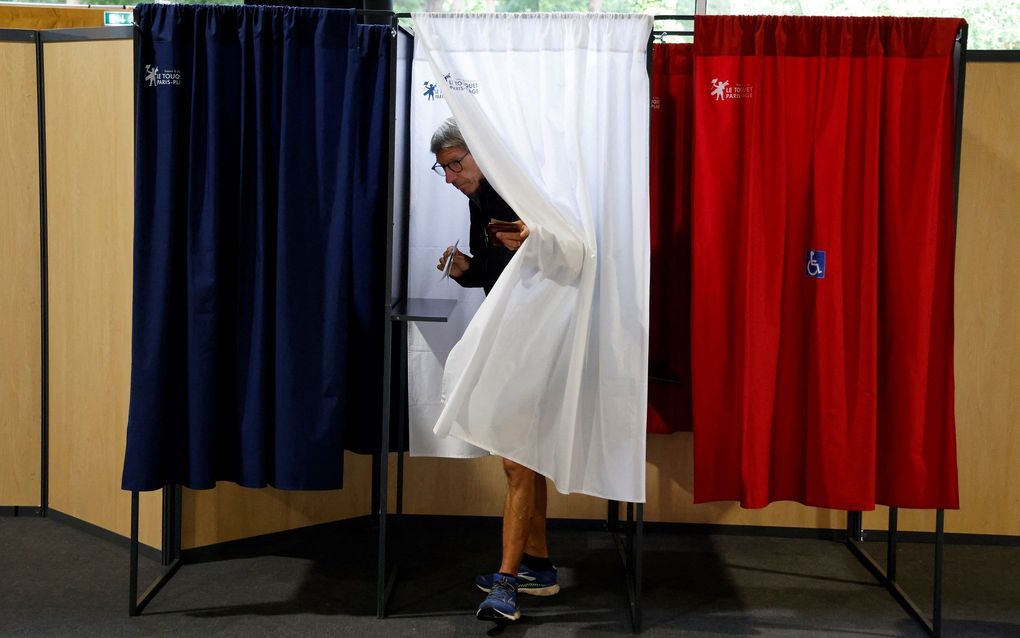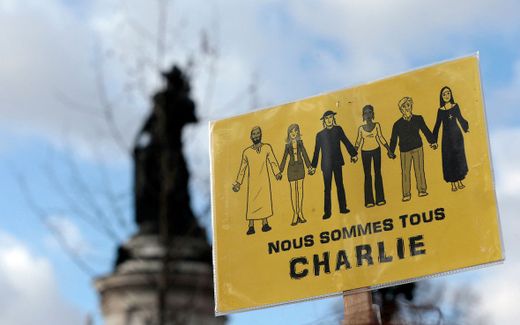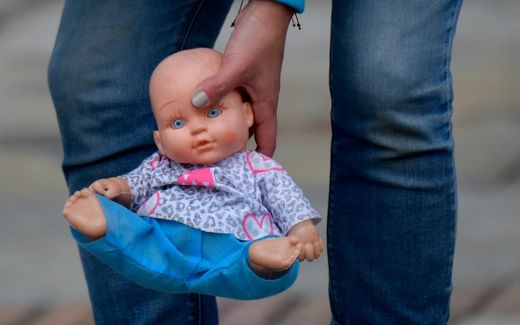Weekly column from France: Christian called to vote based on love
01-07-2022
Christian Life
Marc Derœux

Photo AFP, Ludovic Marin
Christian Life
Recently, I was allowed to vote for the first time. I hesitated before entering the voting booth. Yes, I was reluctant about my political choices, torn between giving my confidence to the newly re-elected President of France and giving a signal by granting more weight to the opposition in the national assembly. Rest assured, I have avoided extreme positions.
The French people have just finished an election sequence that lasted almost 11 weeks. Indeed, 2022 is a pivotal year in the democratic life of France because it is marked by presidential and legislative elections, the latter allowing the renewal of the national assembly.

Marc Derœux (1965) is a French pastor, connected to the Baptist Federation (FEEBF).
At the moment, he serves as the director of the language school Center des Cèdres in Massy (near Paris).
Before, he served as a minister in Lille, Lyon and Valence. He is involved in the National Council of Evangelicals in France (CNEF).
Derœux is married to the schoolteacher Catherine, with whom he has three children.
The stakes in France are numerous, as they are in many democracies in Europe. The end of the COVID crisis, the economic situation, the recent conflict in Ukraine, etc. have repercussions on the daily life of citizens, and in particular on their purchasing power. Like many people, we have seen the increase in prices of basic necessities, such as fuel prices.
In our societies marked by individualism, everyone is seeking their own interests. Nevertheless, we see initiatives that promote solidarity flourishing here and there and we hear more and more speeches advocating the common interest, particularly concerning environmental and ecological issues.
The election campaigns of the last few weeks in France have been an opportunity to debate these issues and concerns. This debate has made the divisions within our society even more visible and unbearable. In this context of social tensions, it is sometimes difficult to find one's way around and to take a stance. The proof of this is the high rate of abstention in the legislative elections we have just experienced in France.
All these factors raise questions about the voice of the Church of Jesus Christ in the great concert of proposals for living well together. What is the added value of a Christian who bears witness of the love of God in his or her life and in his or her surroundings? What influence can the Christian community exercise in society?
The theory of socialisation describes how one becomes social and sociable. Yet it recognises that there are also other characteristics of the individual that have nothing to do with the influence of the society to which one belongs. This is where the connection between sociology and psychology comes into play.
Socialisation takes place through two types of networks: Firstly, through explicit networks such as the family and school. And secondly through implicit networks such as associations, parties, gangs, etc.
All these networks have their influence on the intellect, of course, but also and very much on the behaviour.
We know how much the family, for example, is a strong place of kneading of personalities, for better or for worse. This is also the challenge of the Christian community, as the German pastor Dietrich Bonhoeffer (1906-1945) meditated on in his book On Community Life.
If a Christian is a child of God, his function and role in the community is to love. But not in any way he pleases. A difference between the spiritual and the psychic must be made here in order to understand the meaning of love God gives to the Christian community.
The spiritual encourages a love of service, whereas the psychic encourages a love that is self-serving. Psychic love is essentially covetousness, and the believer moved by this type of love desires a community that is tailored to him or her, to his or her thinking. Spiritual love is about serving, not coveting.
In the Kingdom of God, it is therefore Christ who stands between me and my neighbour. This is the primary meaning of the word communion, which is often used in the context of the Christian community. United with Christ, I am united with those who are also united with Christ. However, Bonhoeffer insists on intercession: "Rather than talking endlessly about Christ with others, the believer will be led to talk more about others with Christ.
On the other hand, the authentic believer in Jesus Christ is also a responsible and committed citizen. For my part, participating in political life, by voting according to my convictions, obliges me to act according to the values of the Gospel.
We are called to participate, albeit in our own way, in the good life together in our neighbourhood, with our relatives and neighbours. We are co-responsible and therefore co-constructors of the world in which we live.
So, yes, let us vote with conscience, pray with fervour, act with conviction and thus help to build love, as the Rule of the community of the Deaconesses of Reuilly reminds us:dedication to health, medical and social works.
Related Articles





